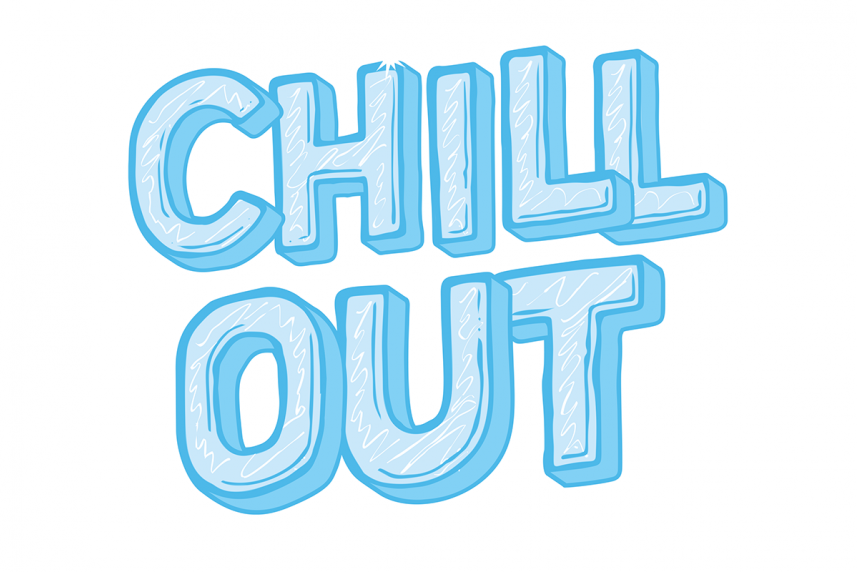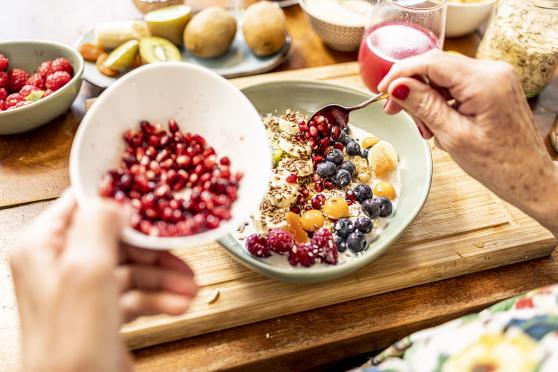Chill out: The perks of frozen foods
If you think only the freshest produce will do, it's time to take another look at frozen food.

If you’ve heard it once, you’ve heard it a million times: Fresh food is best. Right? According to registered dietitians, maybe not. When it comes to nutrition, price, and convenience, frozen food often has the edge.
“When you pick up a bag of frozen broccoli or blueberries, you get produce that was picked at the peak of ripeness,” says Grace Derocha, R.D., C.D.C.E.S., and national spokesperson for the
Academy of Nutrition and Dietetics. “It’s frozen at the perfect moment to be the most nutrient-dense version of that food.”
Here are some common myths about the frozen food aisle, plus tips to help you shop smarter.
MYTH: Frozen food isn’t as healthy as fresh food.
FACT: Some frozen foods have more vitamins and minerals than their fresh-food counterparts. “Frozen foods have great nutrition,” says Michelle Dudash, R.D.N., author of The Low-Carb Mediterranean Cookbook. According to the Academy of Nutrition and Dietetics, it’s fresh foods that lose more vitamins and minerals as they sit on the shelf. Freezing locks the nutrition in.
MYTH: Frozen food doesn’t taste as good.
FACT: You can find great flavor in the freezer. “Certain foods can lose texture and flavor in the freezer,” says Derocha. Like cheese, for instance. But many frozen foods taste great, including bean-based veggie burgers or chili. “Beans taste great after being frozen,” she says. Plus, beans are rich in fiber and can help you get the 25 grams of protein per meal Dudash recommends for older adults.
MYTH: Frozen foods are ultra-processed.
FACT: Many frozen foods are minimally processed. The best choices in the freezer section have only one or two ingredients. Look for frozen fruits and vegetables that contain just the fruit or vegetable itself. As always, read the ingredients list on the back to check for sodium, sugar, and fat, says Derocha. “Some frozen strawberries are loaded with added sugar, and others are just strawberries. You have to read the ingredients,” she says.
MYTH: Prepared foods are expensive.
FACT: Frozen foods are great for a budget. Frozen meals may cost more than homemade ones, but they’re less expensive than takeout, says Dudash. “And when it comes to vegetables, usually frozen costs less,” she adds. Another perk? “It cuts down on food waste. Frozen foods are ready when you are,” says Derocha. “They don’t spoil in the fridge.”
MYTH: A frozen entrée is a meal.
FACT: You should add some vegetables. There’s an easy fix for the problem of small serving sizes in frozen meals. Derocha recommends adding your favorite frozen vegetables or a salad as a side dish. “A small serving of a sodium-rich frozen pizza or pot pie can work if you fill out the meal with frozen mixed vegetables to add nutrition and volume to help satisfy you,” she says.
MYTH: Some frozen foods are off-limits.
FACT: Eat what you enjoy in moderation. Tater tots. Egg rolls. Pizza bites. Dumplings. There are a lot of fun foods in the freezer section. Derocha says anyone with high blood pressure, heart disease, or other health concerns should check the nutrition label before buying. But nothing is completely off-limits for most people. “You can take any of these foods and make them work with your diet by keeping portions in check and adding other nutrient-dense foods, like vegetables or lean proteins, to round out the meal,” she says.


